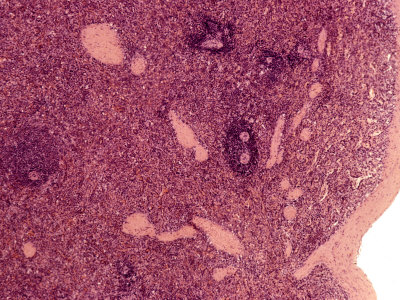From a study by Masateru Uchiyama, Xiangyuan Jin, Qi Zhang, Toshihito Hirai, Atsushi Amano, Hisashi Bashuda and Masanori Niimi:
=== Methods ===
Naive CBA mice (H2k) underwent transplantation of a C57BL/6 (B6, H2b) heart and were exposed to one of three types of music–opera (La Traviata), classical (Mozart), and New Age (Enya)–or one of six different single sound frequencies, for 7 days. Additionally, we prepared two groups of CBA recipients with tympanic membrane perforation exposed to opera for 7 days and CBA recipients exposed to opera for 7 days before transplantation (pre-treatment). An adoptive transfer study was performed to determine whether regulatory cells were generated in allograft recipients. Immunohistochemical, cell-proliferation, cytokine, and flow cytometry assessments were also performed.Results
CBA recipients of a B6 cardiac graft that were exposed to opera music and Mozart had significantly prolonged allograft survival (median survival times [MSTs], 26.5 and 20 days, respectively), whereas those exposed to a single sound frequency (100, 500, 1000, 5000, 10,000, or 20,000 Hz) or Enya did not (MSTs, 7.5, 8, 9, 8, 7.5, 8.5 and 11 days, respectively). Untreated, CBA mice with tympanic membrane perforations and CBA recipients exposed to opera for 7 days before transplantation (pre-treatment) rejected B6 cardiac grafts acutely (MSTs, 7, 8 and 8 days, respectively). Adoptive transfer of whole splenocytes, CD4+ cells, or CD4+CD25+ cells from opera-exposed primary allograft recipients resulted in significantly prolonged allograft survival in naive secondary recipients (MSTs, 36, 68, and >100 days, respectively). Proliferation of splenocytes, interleukin (IL)-2 and interferon (IFN)-gamma production was suppressed in opera-exposed mice, and production of IL-4 and IL-10 from opera-exposed transplant recipients increased compared to that from splenocytes of untreated recipients. Flow cytometry studies showed an increased CD4+CD25+Foxp3+ cell population in splenocytes from those mice.
Conclusion
Our findings indicate that exposure to opera music, such as La traviata [sic], could affect such aspects of the peripheral immune response as generation of regulatory CD4+CD25+ cells and up-regulation of anti-inflammatory cytokines, resulting in prolonged allograft survival [emphasis added].
So mice that heard Verdi and Mozart had better outcomes from transplant surgery than mice that heard single tones, silence, or Enya. In this instance, the immune response is mediated by the spleen, and until recently the function of the spleen was not well understood. Now we know that in mice, the spleen stores monocytes, which are used by their bodies to assist in wound healing. In humans, the spleen filters red blood cells, and plays a large role in immune response. This study shows that the immune response is decreased by classical music; thus classical music, and music in general, may play an important role in the future in mediating immune response.
